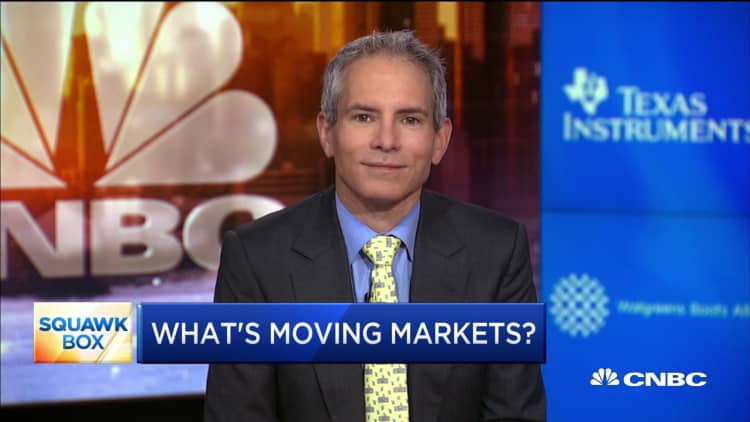
Stocks closed Wednesday's session little changed, struggling to sustain the recent rally that drove the market to record highs, as traders worried about U.S.-China trade discussions.
The Dow Jones Industrial Average was flat, losing just 7 points to 27,492.56. The S&P 500 was also barely changed, closing at 3076.77. The Nasdaq Composite declined nearly 0.3% as big tech including Amazon, Microsoft, Apple and Facebook all underperformed. The 30-stock Dow hit another record close in the previous session.
Stocks hit their session lows after reports said President Donald Trump and Chinese leader Xi Jinping likely won't meet to sign a trade deal until December.
The meeting between Trump and Xi could be delayed as the two sides still need to decide on the terms and a venue, a senior administration official told CNBC. Trump is scheduled to be in London for a gathering of NATO leaders on Dec. 3 - 4, and a potential signing could happen nearby before or after that visit, CNBC reported. Reuters first reported the meeting postponement.
"It's longer than they wanted and the longer it stretches out, the greater the risk it blows up," said Art Cashin, director operations at UBS.
Last month, the U.S. and China reached a truce and started working to finalize a "phase one" trade agreement that includes a pause in tariff escalation and China buying U.S. agriculture products. Trump said last week a new location for signing the limited deal will be announced soon after the initial gathering in mid-November was canceled due to unrelated reasons.
Wall Street analysts also poured cold water on trade-deal hopes. Donald Straszheim, Evercore ISI head of China research, said Wednesday Xi is not coming to the U.S. as "mistrust dominates." China is reportedly pushing for Trump to remove more tariffs imposed in September on around $125 billion worth of Chinese goods.
"This negative sentiment turn we are seeing today is just evidence that the upturn in the past couple of weeks is pretty fragile," Lauren Goodwin, economist and multi-asset portfolio strategist at New York Life Investments. "It's based on enthusiasm rather than any fundamental data."
HP surged more than 6% on Wednesday after Xerox reportedly made a cash-and-stock offer for the personal-computer and printer maker. CVS Health rose 5.3% on stronger-than-expected third-quarter earnings.
Stocks had gotten a boost from better-than-expected economic data this quarter. A gauge for U.S. services activities topped expectations for October, while the labor market remains solid as jobs creation easily beat estimate last month.
However, U.S. productivity dropped by the most since the fourth quarter of 2015 during the third quarter, the Labor Department said on Wednesday.
"Because the uptick was driven by risk sentiment, it's not sustainable unless we saw a meaningful turnaround in economic growth," Goodwin said. "That's three or four months of improving, not just stable, economic data, and I see that as very, very unlikely."
While corporate profits have been largely solid this earnings season, companies are lowering their earnings expectations, which could be weighing on the market. S&P 500 companies now expect to grow their earnings by less than 1% year over year, compared with a 23% growth rate just 14 months ago, according to UBS.
The Dow's year-to-date gain now stands at nearly 18% after rallying 3.3% in the past month. The S&P 500 is up more than 22% this year after surging 4% in the past month.
— CNBC's Patti Domm and Elliot Smith contributed to this report.


